DBJ Americas Inc.
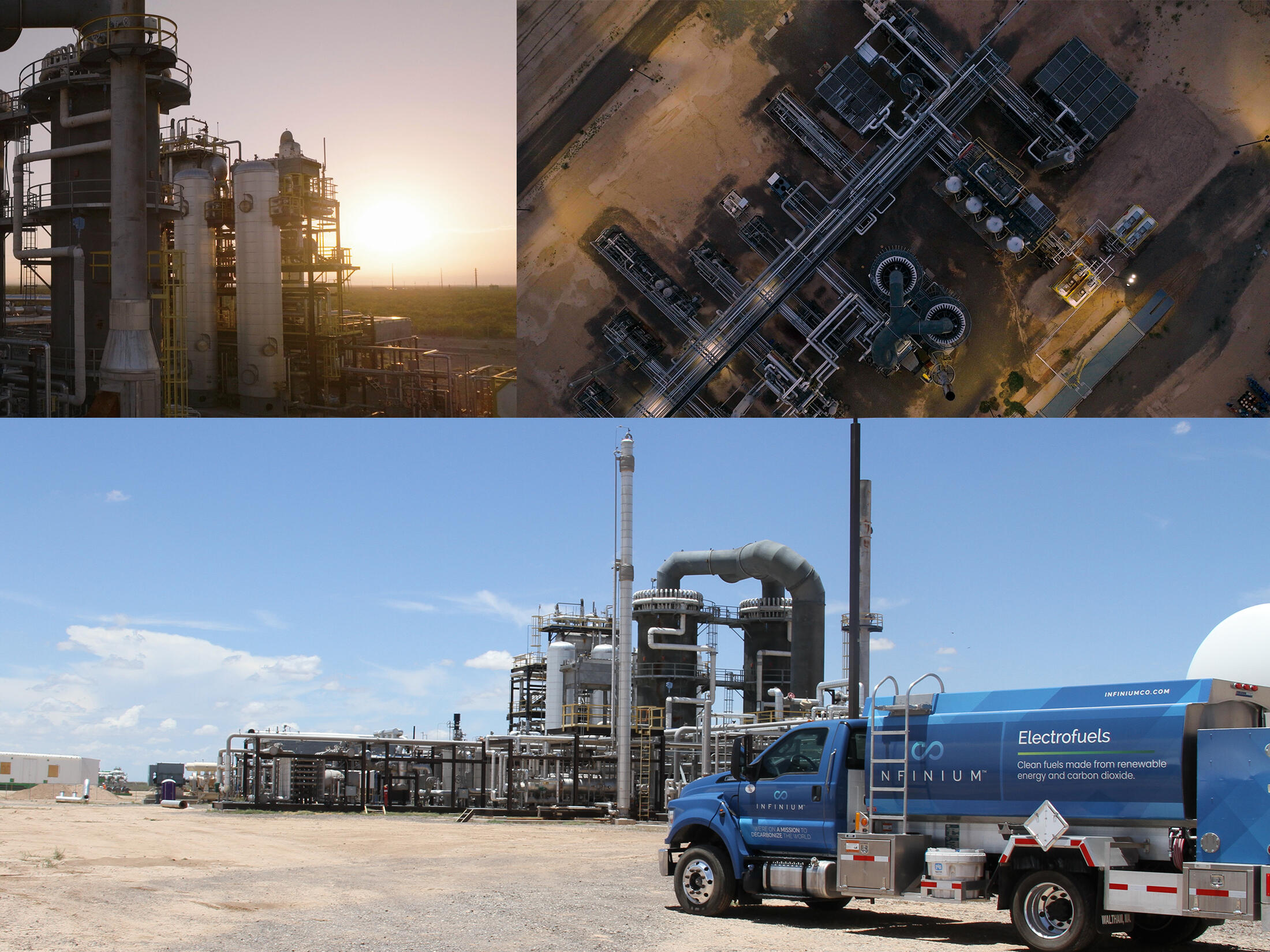

DBJ Americas Inc., a U.S. subsidiary of the Development Bank of Japan (DBJ) Group, is responsible for management of relationships with Japanese-affiliated and local companies, which are potential customers for investment and loan services through project financing, as well as with investment funds and other parties. Working with relevant Head Office departments, DBJ Americas discerns the potential of startup-stage projects and performs due diligence and monitoring in the course of the projects. Primary target sectors include energy, transportation infrastructure, and real estate development, each of which is assigned with a theme to focus on, with conscious attention paid to the core,priority, and emerging areas. DBJ’s first-ever investment in a climate tech startup in the United States has been made possible through such group-wide collaboration.
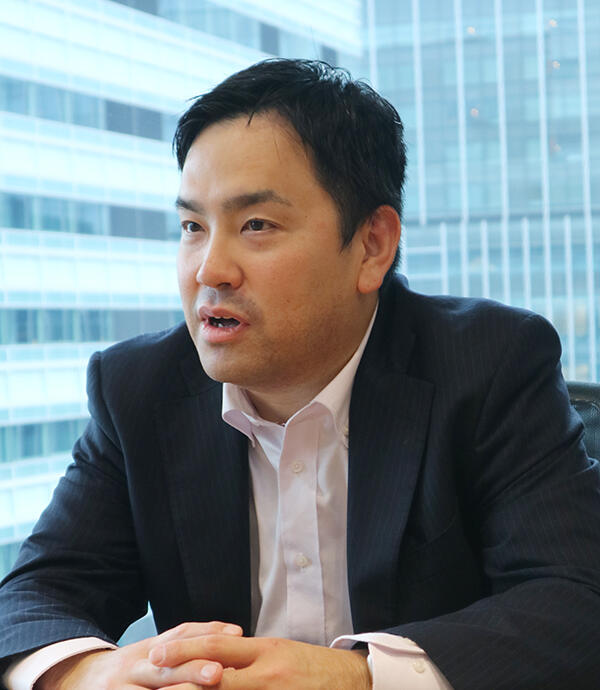
Head of Corporate &
Structured Finance Group,
DBJ Americas Inc.
Masahiko Odamura
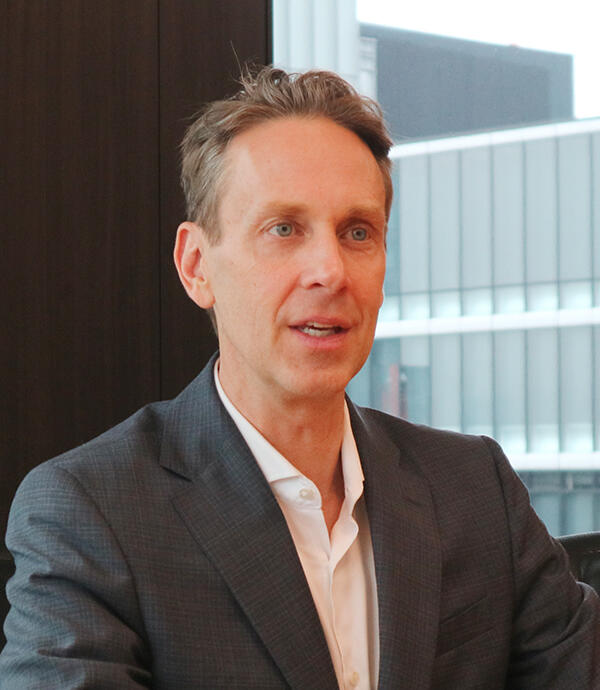
CEO,
Infinium Holdings, Inc.
Robert Schuetzle 氏
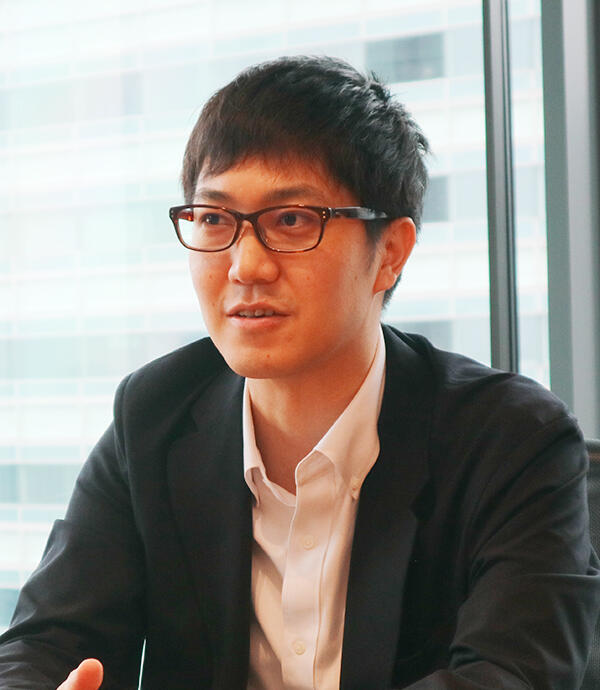
Vice President, Division 5,
Corporate Finance Department,
DBJ
Satoshi Mizunoe
DBJ's operations in the United States and Europe have expanded, centering on investing and lending for infrastructure projects. For instance, DBJ has supported Japanese energy companies in investing in gas-fired thermal power projects in the United States. It has also created opportunities for Japanese investors to invest in and lend to overseas projects.One specific example of the latter is DBJ's joint participation with regional banks in a public-private partnership (PPP)infrastructure project. Meanwhile, in another example, DBJ, together with a major Japanese public pension fund, joined a global alliance to co-invest in infrastructure--such as power grids and railroads--in advanced economies. The participation in these projects is meaningful in that the know-how acquired from such vanguard projects can be brought back for adoption in Japan.
"In order to ensure economic viability, our initial approach in expanding operations overseas was to focus on areas in which we have experience and a successful track record in Japan, and ac cumulate knowledge and experience by investing in and lending to projects receiving investments from reliable investors, such as loc al funds in which DB J invests," said Masahiko Odamura of DBJ Americas. "And only then, w e would begin to introduce promising projects--those in and to which we invest and lend with conviction--to companies, regional banks, and institutional investors in Japan, thereby playing a bridging r ole to link financial resources available in Japan and promising investment and lending opportunities overseas. This w ay, we have contributed to increasing Japanese investors' investments in overseas alternatives as w ell as t o Japanese companies'expansion into overseas markets."
The DBJ Group has been pursuing the GRIT Strategy※1 toward achieving its sustainability goals by 2050. Accordingly, DBJ Americas has been pressing ahead with investment and lending activities that would contribute to this strategy, primarily in the core and priority areas. However, in startup investments, one of the emerging areas, DBJ Americas has faced several challenges, particularly in investing in climate tech startups. First, since climate technologies are a novel global trend, DBJ had limited experience working with climate tech enterprises whether in Japan or abroad. Second, compared to infrastructure projects, for which DBJ has a track record of investments and lending, climate tech enterprises pose higher risks and it takes a discerning eye to select promising ones from among numerous candidates, a mix of the good and the bad. Third,it seemed difficult for DBJ to demonstrate its strengths in a market where some tech-savvy Japanese-affiliated companies are already active as investors. "We struggled for days to figure out the right balance to strike between economic and social values in investing in overseas climate tech enterprises as expected of DBJ," Odamura said.
In March 2024, after overcoming all these challenges, DBJ made an equity investment in Infinium Holdings, Inc., a synthetic fuel startup headquartered in Sacramento, California. Infinium, a startup developer and producer of e-fuels (e-diesel, e-SAF,and e-naphtha), boasts innovative catalyst technologies. This first-ever investment in a U.S.-based climate tech startup has been realized through intra-Group collaboration between Corporate Finance Department's Division 5 and DBJ Americas.
At DBJ, investments and lending for the energy sector are under the purview of Corporate Finance Department's Division 5.Although such investments and lending are primarily targeted at domestic energy companies, climate tech startups have emerged as new targets in recent years. Particularly, hydrogen-related technologies have become a focus of attention as hydrogen is considered an important energy vector for decarbonization. "However, disruptive innovation is needed for rationalizing decarbonization costs over a medium to long term," said Satoshi Mizunoe of Corporate Finance Department's Division 5. He envisions a scenario in which DBJ participates in forerunner projects in the United States and Europe to acquire know-how, and then utilizes it for the development of necessary infrastructure in Japan.
AP Ventures LLP※2 is a venture capital firm we came across through European hydrogen market participants while conducting market research for venture capital funds dedicated to investing in hydrogen. Headquartered in London, AP Ventures is a hydrogen focused firm covering the entire hydrogen value chain. After assessing AP Ventures' track records and its unique positioning in the market, DBJ invested in a fund managed by the firm as a limited partner investor in February 2024 . "At Corporate Finance Department's Division 5, the participation in the AP Ventures fund paved the way to expand our global reach to climate tech enterprises. Today, we are partnering with multiple overseas venture capital firms," Mizunoe said. Infinium is one of the portfolio companies of the AP Venture fund.
Meanwhile, in the United States, DBJ Americas was beginning to pave the way, through dialogue with Japanese-affiliated customer companies, to the first-ever climate tech investment in the United States. Among the early-mover companies in this field of investment, some have a policy of investing only in those included in the portfolio of a major venture capital firm, which they consider a key requisite for investment, while some others are effectively given authority to make investment decisions without being affected too much from policies dictated by their headquarters. At the same time, however,some companies are concerned that Japanese investors tend to lose ground in later rounds of funding, i.e., after a startup moves beyond the early stage, as infrastructure funds and investors from other Asian countries come in with massive funds.
"Corporate Finance Department's Division5 was working with leading funds in making investments, while accumulating in-depth knowledge by focusing on hydrogen. I found that approach quite convincing, because it has a common thread with my own experience with investing in and lending to overseas infrastructure projects," Odamura said. "I found that even those Japanese companies, which are leading the way and familiar with cutting-edge energy transition technologies,are leveraging the discernment of influential venture capital firms. There, I saw the kind of prudence that can be taken as an example for other Japanese investors to follow. Those forerunners' determination to make truly meaningful investments,without being bound too much by the intent of their headquarters, also hit a chord with me. At the same time, I thought that DBJ's participation, together with its pump-priming effect to bring in other Japanese investors, could help maintain and increase the presence of Japanese players in the sphere of globally promising climate technologies. From the beginning, we were paying significant attention to Infinium as a promising prospective investee, which would benefit from the aviation industry's strong commitment to sustainability and supportive government policies. Once we began to see a path to pursuing both economic and social values, including the possibility of supporting the introduction of Infinium's technologies and relevant projects to Japan, we promptly make necessary arrangements for assessment at DBJ Americas."
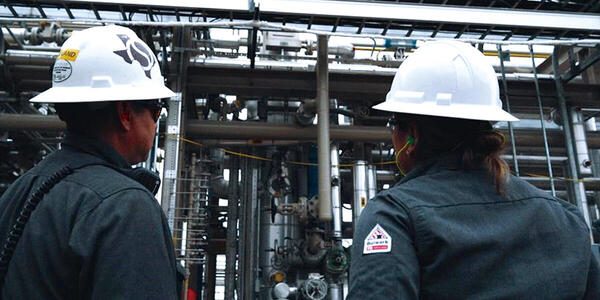
Electro-fuels (e-fuels) business undertaken by Infinium is a promising area of climate technologies, in which DBJ sees a big potential. E-fuels refer to a new class of synthetic fuels produced using renewable energy and waste CO2. E-fuels can be used by conventional trucks, planes, and ships without any modification, and reduce their CO2 emissions dramatically compared to fossil fuels. Therefore, the aviation industry is accelerating the adoption of sustainable aviation fuel (SAF),a type of e-fuels, as a vehicle for decarbonation. Major airlines have set a target of using SAF for 10% of their jet fuel consumption by 2030, and it is expected that the global market for SAF will continue to expand after 2030, driven by regulations and supportive government policies. However, worldwide SAF production in 2021 accounted for only 0.03% of global jet fuel consumption, while SAF prices are estimated to be twice to eight times higher than conventional jet fuels.
Based on the feedstock and production method used, SAF is classified int o the following four broad categories: 1) HEFA-SPK derived from waste fats and cooking oils, 2) FT -SPK derived from biomass, 3 ) Alcohol-to-jet (ATJ), and 4) e -SAF made from hydrogen and CO2. At present, HEFA-SPK has a price advantage over the other three ptions. However, it has limit ed room for further cost reduction and f aces significant constraints in terms of greenhouse gas (GHG) r eduction potential and feedstock availability. In comparison, e -SAF, albeit s till an emerging technology, offers supply stability and has significant scale-up potential with it s market expected to expand driven by the need t o reduce environmental impacts. Production methods for e-SAF can be further classified int o two broad categories, namely, reverse water-gas shift (R WGS) and CO2 electrolysis. Of these two, RWGS is technologically more advanced but it s scale-up--which is needed to allow the recovery of investment costs--has been a challenge. Infinium has successfully launched the world's first commercial-scale e -SAF production, using its proprietary RWGS technology.
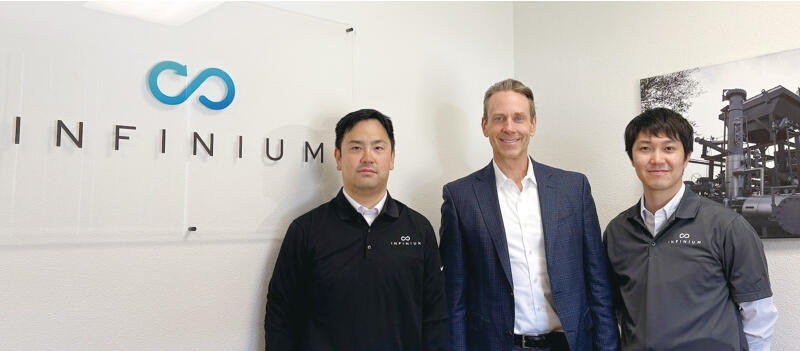
In making a direct investment in Infinium, Corporate Finance Department's Division 5 and DBJ Americas teamed up and collaborated.Corporate Finance Department's Division 5 asked AP Ventures to introduce its portfolio companies and, in July 2023, it held the first interview with Infinium. "Based on DBJ's investment criteria, Infinium emerged as the most promising investee candidate. So, we launched a full-scale assessment of the company as a prospective investment," Mizunoe said.Meanwhile, on its part, DBJ Americas met with major investors for reference checks, interviewed Infinium's management team, conducted an on-site inspection of Infinium's first e-fuels production plant in Texas, and engaged in the making of projections.
"The first plant has been in stable operation and it is well-established technologically. The second plant, currently under construction, will have a production capacity 10 time larger," Odamura said. "Infinium has developed and deployed proprietary catalyst technologies that enable efficient e-SAF production and it also has cost competitiveness. And by leveraging these strengths, the company has already concluded offtake contracts with blue-chip companies, securing demand for e-SAF produced in the second plant. It is also supported by strong project partners including AP Ventures. After considering all these factors, we decided to make an equity investment in Infinium.
"Welcoming DBJ's participation, Infinium CEO Robert Schuetzle sent the following comment: "The purpose of this funding round is to raise funds primarily for the construction of our second e-fuels plant, and we thank you for your investment to support our growth. The participation of Japan's leading overnmental financial institution as an investor has supported investments from additional Japanese companies. We appreciate your continued support in our future projects."
For DBJ, the p articipation in Infinium 's project has a signific ant meaning.
Mizunoe said: "In addition to the prospect of adequate economic return, this project is our first co-investment with AP Ventures,which has led to the accumulation of practical investment know-how and the development of internal investment specialists. The investment in Infinium heightened DBJ's presence within the climate tech sphere in the United States, and I think it will contribute to the further build-up of intellectual and human capital in the field of hydrogen and SAF."Meanwhile, Odamura said: "While ensuring appropriate collaboration across the DBJ Group, including with relevant Head Office departments, DBJ Americas will strive to create new additional value and stories by combining its staff's individual experience,track records and knowledge accumulated to date with new inputs gathered from communication here in the United States. By doing so, we will continue our challenge of pursuing both economic and social values--as expected of DBJ--in the United States, a market that is at the leading edge of the trend of the time and apt to change quickly and drastically."
This may lead to the development of a domestic SAF market at an early point in time and then to mass production of e-SAF in the medium to long term. It is also expected that Japanese companies' investments in e-SAF will increase their presence in the market.
※1 GRIT stands for "green" (initiatives for achieving carbon neutrality), "resilience & recovery" (initiatives to help create flexible and resilient industry and socie ty), "innovation," and "transition/transformation." The GRIT Strategy calls for undertaking investment and lending activities from the perspective of promoting the GRIT initiatives toward achieving a sustainable society.
※2 The relationship between DBJ Europe Limited and AP Ventures LLP is introduced in the DBJ Quarterly Journal No.56.
(Photo:Infinium Holdings, Inc.)
この記事は季刊DBJ No.57に掲載されています
季刊DBJ No.57